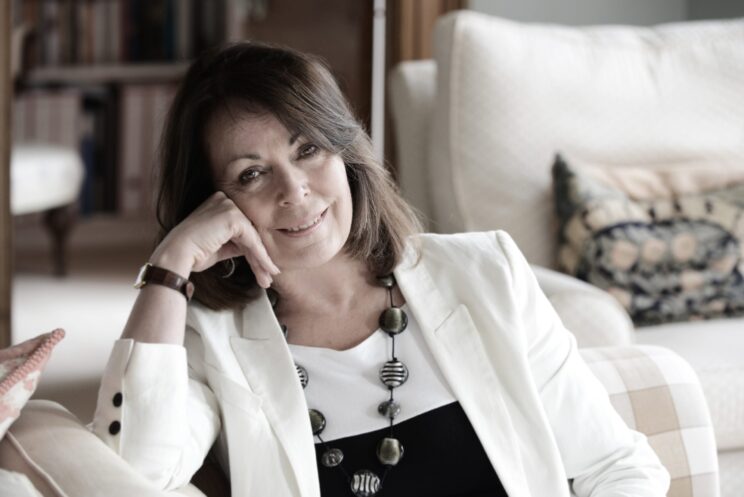Shortlist interview: Rose Tremain
29th May, 2024
In the first of six interviews with this year’s shortlisted authors, Dame Rose Tremain answers our questions about her book Absolutely and Forever.
How do you feel about being shortlisted for the Walter Scott Prize for Historical Fiction? Do you consider yourself an historical novelist?
This has happened once before in 2012. I was thrilled then and I’m thrilled now. Prizes with great writers’ names on them seem particularly important to me and Walter Scott was certainly a great writer, tirelessly examining the past and giving a new edge to old stories.
I think I am only an historical novelist some of the time. Of my 15 novels, just six are set in the past, but I usually find that I am happy there, primarily because I acquire precious new companions: the people in historical studies, diaries and biographies who stay with me and guide me before and during the writing of the novel. When I was working on Restoration, I had moments of believing that Samuel Pepys was sitting in the next room, peering at his great work, wearing his new green glasses.
How did the people and times you write about in this novel first lodge in your imagination?
Well, this book just sneaks in under Sir Walter’s ‘sixty years’, so I’m mainly writing about things I’ve always known. Many of these clamoured for inclusion – the fatal boy, the philistine mother, the circumscribed future, the crazy 1960s. All they needed was a coherent emotional structure – a proper story – and some key inventions, such as ‘Pet’, the real (Scottish) heroine of the tale. And I do feel that the core idea – that some lives can be defined forever by one early but devastating and unexpected occurrence – remains and will always remain true. But it’s an intriguing shock to face up to the fact that my childhood and youth are now part of history. (“Well, there you are, Mistress Rose!” says Pepys, “and so to the grave with you…”)
What place does research have in your writing? When does the fiction take over from the facts?
Writing historical fiction usually entails a massive assembly of sources. You can’t write with any truth about an epoch and a place without knowing your way around it – and this takes time. But I think you then need to use this research with a very light touch, as though it were something you’d just known all along. Historical novels which advertise their data-gathering are almost always dull. Your own story and the ideas that story is exploring are what matters. I sometimes compare this process to planting a complex garden; the research probably gives you the confining structures, the variety of weather you have to expect, but then you have invent all the colour and variety within the garden, keeping in your head some splendid, unique and realisable vision of your own.
Can writing about the past help us to deal with the present and think about the future?
It can, but it doesn’t always. Marianne in Absolutely and Forever is derided for telling her history teacher that she likes this subject because everything is safely in the past and she doesn’t have to worry about it anymore! Historical novels can give you this kind of escape, but the best of them strike into timeless themes or suggest parallels between one epoch and another. In Jim Crace’s The Gift of Stones, a novel about the Iron Age being slowly obliterated by the Bronze Age, he was allegedly exploring the plight of the Birmingham car-workers who lost their livelihoods when car manufacturing in Britain hit the buffers. He was also looking at a universal truth – that if you take away a person’s self-respect, you are dealing them a fatal blow. In Restoration, written in 1989, I was trying to hold up a mirror to the age of materialism which came upon us under Margaret Thatcher. In The Colour (2001) I was looking at the way innocent dreams of an honourable, hard-working life can almost always be turned to dust by the lure of sudden riches.
The Walter Scott Prize has a younger sibling, the Young Walter Scott Prize, which is a creative writing prize for young people (11-19 years), who are asked to write a short story set before they were born. If you were asked for one tip to help young writers start writing historical fiction, what would it be?
Give history to children in the form of lists of dates or lumps of data and they won’t respond to it at all, but give them an image (King Charles II, say, hiding from his pursuers in an oak tree, or a defeated Napolean staring out at an empty ocean from the cliffs of St Helena) and this could be something which might move and inspire them. So encourage the young writers to start with a single life and ask them to imagine they were living it. Get them to picture it, (what is that flower-seller wearing? What flowers is she offering? What sounds are heard all around her in the street?) as though they were writing the first scene of a movie. And then I’ll bet they’ll want to go on.

